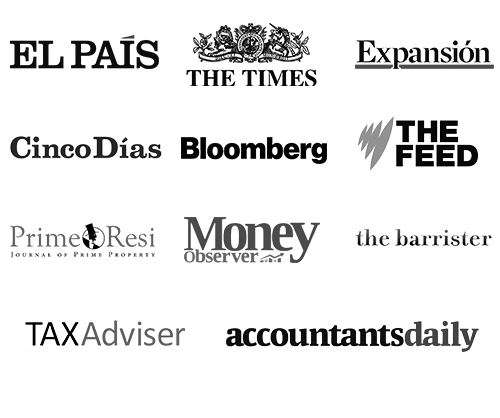UK Tax Budget 2012 – The Association of Taxation Technicians has produced a Special Report on the March Budget in their April 2012 Newsletter. The full Report is detailed below:
The contents of George Osborne’s third Budget were so well rehearsed that the real thing threatened to be an anti-climax. Was there anything left that the Chancellor could surprise us with, especially as he had such little fiscal room for manoeuvre?
The answer was both yes and no. After all the income tax rumours, Mr Osborne decided to make the change to 45% from April 2013. His 2013/14 increase in the personal allowance allowed him to start phasing out the age allowance – an unexpected revenue-raising ploy.
Income tax bands, rates and personal allowances All income tax rates for 2012/13 will remain at their 2011/12 levels. For 2013/14 the personal allowance will rise from £8,105 to £9,205 and there will be a £2,125 reduction in the basic rate limit from £34,370 to £32,245.
From 2013/14, there will be no increase in the age-related personal allowances and their availability will be restricted to people born before 6 April 1948 for the allowance worth £10,500, and 6 April 1938 for the allowance worth £10,660. The aim is to phase out the age-related allowances within a few years. For 2013/14 the additional rate of tax will be reduced from 50% to 45% (from 42.5% to 37.5% for dividends). The rates of tax for trusts will be similarly reduced.
A cap on unlimited income tax reliefs will apply to income tax reliefs that individuals will be able to claim from 6 April 2013. The cap will apply only to reliefs that are currently unlimited – e.g. qualifying interest payments. For anyone seeking to claim more than £50,000 in reliefs, a cap will be set at 25% of income (or £50,000, whichever is greater).
Child benefit will be withdrawn for some taxpayers by an income tax charge with effect from 7 January 2013. The charge will only apply to households (regardless of marital status) where a parent or partner has an ‘adjusted net income’ of over £50,000 a year. Where each has an income of over £50,000, the charge will only apply to the person with the higher income. The charge will be 1% of the amount of child benefit for every £100 of income that exceeds £50,000. A taxpayer whose income is at least £60,000 will be liable to a charge equivalent to a full amount of child benefit.
Venture capital trusts (VCTs) and enterprise investment schemes (EISs) The Finance Bill 2012 will make various changes to VCTs and EISs, which have been subject to extensive consultation. For example, the EIS annual investment limit for individuals will increase to £1 million from 6 April 2012. The Finance Bill 2012 will also legislate for seed enterprise investment schemes (SEISs), which will offer 50% income tax relief with an annual investment limit for individuals of £100,000. In 2012/13 only, SEIS will offer a CGT exemption for gains realised on the disposal of assets that are invested in the scheme.
Enterprise management incentive (EMI) and other share schemes: The individual limit on qualifying EMI options will be increased from £120,000 to £250,000. The change will be made by statutory instrument, as soon as possible. Gains made on shares acquired through exercising EMI options after 5 April 2012 will be eligible for CGT entrepreneurs’ relief. There will be consultation on ways to extend access to EMI for academics who are employed by a qualifying company. These changes are subject to State aid approval. There will also be a consultation on the Government’s response to the Office for Tax Simplification’s report on tax advantaged share schemes, with legislation in Finance Bill 2013. The Treasury will conduct a separate internal review on the role of employee ownership in supporting growth.
Company cars and vans: The appropriate percentage of list price subject to tax will increase by 1% for cars emitting more than 75g/km of CO2 and will apply up to a maximum of 35% in 2014/15. The increase will be 2% up to a maximum of 37% in both 2015/16 and 2016/17. From April 2015, the appropriate percentage for zero emission and low carbon vehicles will be 13% and will increase by 2% in 2016/17. From April 2016, the Government will remove the 3% diesel supplement, so that diesel cars will be subject to the same level of tax as petrol cars. The Government will exclude certain security enhancements from being treated as accessories in calculating the cash equivalent of the benefit on company cars. The changes take effect retrospectively from 6 April 2011. From 6 April 2012, the car fuel benefit charge (FBC) multiplier for cars will increase from £18,800 to £20,200. The FBC multiplier will increase by 2% above the RPI in 2013/14. From 6 April 2012, the van FBC multiplier will be frozen at £550, and will increase by the RPI in 2013/14. The van benefit charge will be frozen at £3,000 in 2012/13.
Domicile and residence: As previously announced, from 6 April 2012 there will be changes to the taxation of non-domiciled individuals to allow them to:
• bring their overseas income and gains to the UK tax-free to make commercial investments in qualifying businesses;
• increase the existing £30,000 annual charge to £50,000 for those resident in the UK in 12 or more of the last 14 tax years; and
• reduce the complexity of some aspects of the remittance basis rules. A new statutory residence test will be introduced with effect from 6 April 2013.
From the same date, ‘ordinary residence’ will be abolished for tax purposes, but overseas workday relief will be retained and placed on a statutory footing. HMRC will revise its practice on the taxation of non-resident sports people. HMRC will take training days into account when calculating the proportion of worldwide endorsement income that is subject to UK tax.
Taxation of pensions – Several changes to pensions take effect from 6 April 2012. There will be:
• a reduction in the standard lifetime allowance from £1.8 million to £1.5 million;
• an extension of the commutation rules to allow individuals aged 60 or over to commute funds of up to £2,000 held in personal pensions into a lump sum, regardless of their other pension savings, subject to a maximum of two such commutations in a lifetime; and
• the end of contracting out of the state second pension scheme (S2P) via money purchase occupational schemes and personal pensions.
There will be no change to the £50,000 annual allowance. Finance Bill 2013 will amend the rules that currently allow employers to pay pension contributions into their employees’ family members’ pensions as part of their employees’ remuneration package. The existing tax and NIC advantages from these arrangements will be removed.
Qualifying recognised overseas pension schemes Finance Bill 2013 will strengthen reporting requirements and powers of exclusion relating to the QROPS regime, supporting the changes proposed in December 2011. Where a country or territory in which a QROPS is established allows pension schemes to provide tax advantages that are not intended to be available under the QROPS rules, these schemes will be excluded from being QROPS.
Income tax on interest – There will be consultation on proposals for changes to the income tax rules on the taxation of interest and interest-like returns, and the rules on the deduction of tax at source from such amounts. Changes will be introduced in the Finance Act 2013.
Working tax credit: working hours rules for carers – From 6 April 2012, a couple where at least one partner is entitled to carer’s allowance may also qualify for WTC, including the childcare element, if at least one of the partners works for at least 16 hours a week.
CGT: annual exempt amount: The CGT annual exempt amount will remain at its 2011/12 level of £10,600 for 2012/13. From 6 April 2013, it will rise in line with the consumer prices index (CPI) instead of the retail prices index (RPI), as announced in the Budget 2011.
CGT regime and non-residents: From April 2013 and following consultation about the proposals, the CGT regime will be extended to cover gains on disposals by non-resident companies (and other non-natural persons) of UK residential property and shares or interests in such property.
Single payment scheme and CGT roll-over relief: As previously announced, Finance Bill 2012 will preserve the availability of CGT roll-over relief for farmers and companies carrying on a farming business who dispose of or acquire entitlements under the EU SPS.
Inheritance tax: spouses and civil partners domiciled outside the UK Ahead of legislation in the Finance Bill 2013 there will be consultation on increasing the IHT-exempt amount that a UK-domiciled individual can transfer to their non-UK domiciled spouse or civil partner; and allowing individuals who are domiciled outside the UK and who have a UK-domiciled spouse or civil partner to elect to be treated as domiciled in the UK for the purposes of IHT.
IHT: periodic charges on trusts – There will be consultation about simplifying the calculation of IHT periodic and exit charges for trusts, and any legislation will be in Finance Bill 2013.
IHT: reduced rate for charitable donations – As previously announced, for deaths on or after 6 April 2012, a lower rate of IHT of 36% will apply where 10% or more of a deceased person’s net estate is left to charity.
IHT:threshold – The IHT nil-rate band (NRB) will be frozen at £325,000 until April 2015. Also, as previously announced, the NRB will then rise in line with the CPI.
Stamp duty land tax rates: A new SDLT rate of 7% for residential properties over £2 million will apply from 22 March 2012. A 15% rate of SDLT will apply to residential properties over £2 million purchased by companies and certain other non-natural persons from 21 March 2012. In addition, there will be consultations on the introduction of an annual charge on residential properties valued over £2 million already owned by such persons, with the intention that the measure will come into effect in April 2013. The Government will consult on measures to simplify SDLT rules for non-standard leases.
Corporation tax and bank levy rates: The main rate of corporation tax (CT) will fall to 24% from 1 April 2012, rather than the previously announced rate of 25%. It will then be reduced to 23% from 1 April 2013 and to 22% from 1 April 2014. The small profits rate will continue to be 20% from 1 April 2012. The full rate of bank levy will increase from 0.088% to 0.105% from 1 January 2013 so that banks do not benefit from the CT reduction.
Tax simplification for small businesses: A voluntary cash basis for calculating tax for unincorporated businesses with a turnover of up to £77,000 will be introduced from April 2013, subject to consultation. There will also be consultation on a simplified expenses system for business use of cars, motorcycles and homes, and on proposals to introduce a disincorporation relief. HMRC says it will improve the administration of the tax system for small businesses.
Real estate investment trusts: The Government will consult in 2012 on the REITs regime, specifically on the role REITs can play in supporting the social housing sector and whether to change the treatment of income received by a REIT when it invests in another REIT.
Controlled foreign companies: Following consultation, a new CFC regime will be introduced for CFCs with accounting periods beginning after 31 December 2013. Includes a finance company partial exemption that will broadly result in an effective UK tax rate of 25% of the main CT rate on profits derived from overseas group financing arrangements.
Research and development: An ‘above the line’ credit for R&D will be introduced from April 2013 with a minimum rate of 9.1% before tax. This means that loss-making companies will be able to claim payment of the credit. From 1 April 2012, the rate of R&D tax credits for SMEs will increase from 200% to 225%, and the limit on tax credit payable to SMEs and the £10,000 minimum expenditure requirement will be removed, all as previously announced.
Patent box Companies will be able to elect to apply a 10% CT charge to a proportion of profits attributed to patents and certain other similar types of intellectual property. The proportion will start at 60% from 1 April 2013 and increase to 100% over five years.
CT reliefs for the creative sector: CT reliefs for the video games, animation and high-end television industries will be introduced from April 2013, subject to State aid approval.
Capital allowances in enterprise zones: Capital allowances of 100% will be available to trading companies investing in plant and machinery in designated areas of the London Royal Docks enterprise zone, and enterprise zones in Irvine, Nigg, Dundee and Deeside from 1 April 2012.
Capital allowances – cars: The 100% first year allowance for new low-emission cars will continue for a further two years to 31 March 2015 except for leased cars. The qualifying threshold will be reduced to 95g/km from April 2013. Also from April 2013, the CO2 emissions threshold for the main (18%) rate of capital allowances for cars will reduce from 160g/km to 130g/km, as will the threshold above which the lease rental restriction applies.
Capital allowances – other measures Expenditure on solar panels will be designated as special rate (8%) expenditure for capital allowances purposes from April 2012. The list of designated energy-saving and water-efficient technologies qualifying for enhanced capital allowances will be updated during summer 2012, subject to State aid approval. The availability of first-year tax credits for expenditure on certain environmentally beneficial plant or machinery that generates a loss will continue for a further five years to 31 March 2018.
Company distributions: As previously announced, certain transactions involving transfers of assets or liabilities between UK-resident companies will not be excluded from being treated as distributions for CT purposes.
Generally accepted accounting practice: Existing rules dealing with tax adjustments on a change in accounting policy will continue to apply following expected changes to UK GAAP in 2012, as previously announced.
Corporate capital gains simplification: The Government will consult in summer 2012 on whether to introduce a rule allowing companies with a non-sterling functional currency to calculate their capital gains and losses in that currency.
Community investment tax relief: The rules that govern the speed with which Community Development Finance Institutions must lend on the funding they receive will be relaxed from April 2013, and investors will be able to carry forward unused relief
VAT thresholds The VAT registration threshold will rise from £73,000 to £77,000 from 1 April 2012 and the deregistration threshold will increase from £71,000 to £75,000.
Road fuel scale charges: Long-standing concessions will be brought into law and a concession relating to partially exempt businesses will be withdrawn, both in the Finance Act 2013.
Correcting anomalies and closing loopholes: From 1 October 2012, standard rate VAT will be charged on the provision of self-storage facilities and approved alterations to listed buildings. Standard rate VAT will also apply, where it does not already do so, to the sale of hot food, cold food consumed on the supplier’s premises, sports drinks, holiday caravan purchases and rental of hairdressers’ chairs.
Providers of education: A review of the VAT exemption for education providers, in particular at university degree level, will aim to ensure that commercial universities are treated fairly.
Charitable buildings: Buildings used by charities for non-business purposes, and/or as village halls, will be withdrawn from the scope of the reduced rate of VAT for the supply and installation of energy-saving materials. The reduced rate will continue to apply to the supply and installation of energy-saving materials in residential accommodation, including property run by charities.
Fraud on imported road vehicles: A new system to tackle VAT evasion on road vehicles brought into the UK will be introduced from 15 April 2013, as previously announced. Vehicles will have to be notified to HMRC before registration with the DVLA.
Cost sharing A VAT exemption will be available for services shared between VAT exempt bodies, including charities and universities.
General anti-abuse rule (GAAR): The Government accepts that a GAAR targeted at artificial and abusive tax avoidance schemes would improve the UK’s ability to tackle tax avoidance, while maintaining the attractiveness of the UK as a location for business investment. The Government will consult on this in summer 2012. The GAAR will also be extended to SDLT. The intention is to introduce legislation in Finance Bill 2013.
Stamp duty land tax: sub-sales rules Finance Bill 2012 will put beyond doubt that an SDLT avoidance scheme that ‘abuses’ the sub-sales rules does not work. The change makes it explicit that the grant or assignment of an option cannot be a ‘transfer of rights’.
Personal service companies and IR35: A package of measures will aim to tighten up on avoidance using personal service companies, and will aim to make the existing IR35 legislation easier to understand. This will include strengthening HMRC’s specialist compliance teams, simplifying IR35 administration, and consulting on proposals requiring office holders/controlling persons integral to the running of an organisation to deduct PAYE and NICs.
Inheritance tax: offshore trusts. The excluded property and settled property provisions will be amended in the Finance Bill 2012. This will close an avoidance scheme involving the acquisition of interests in offshore trusts by UK-domiciled individuals.
Transfer of assets abroad and gains on assets held by foreign companies: As previously announced, there will be changes to the legislation dealing with the transfer of assets abroad and gains on assets held by foreign companies closely controlled by UK participators. The changes will take effect from 6 April 2012 but, exceptionally, a taxpayer may elect for the new rules to apply from 6 April 2013.
Other anti-avoidance announcements: There will also be changes designed to counter tax avoidance using manufactured payments, unauthorised unit trusts, authorised investment funds, capital allowances on plant and machinery, debt buy-backs, post-cessation reliefs, corporate settlor-interested trusts, property business loss relief, and life insurance loss relief.
A full outline can be found here: https://www.bbc.co.uk/news/uk-politics-17450719




